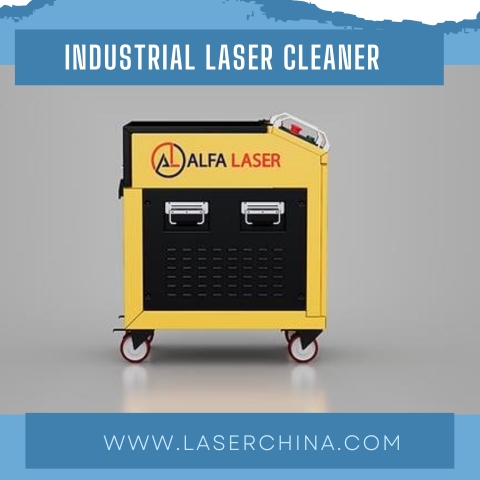
Efficiency Redefined: The Power and Precision of Industrial Laser Cleaners
In today’s industrial landscape, maintaining clean and prepared surfaces is crucial for productivity and quality assurance. Traditional cleaning methods often involve chemicals or abrasive techniques, which can be time-consuming, labor-intensive, and environmentally hazardous. Industrial laser cleaners have emerged as a revolutionary solution, offering unmatched precision, efficiency, and sustainability for a wide range of industrial applications.
Understanding Industrial Laser Cleaners
Industrial laser cleaners utilize high-powered laser beams to remove contaminants, coatings, rust, and oxides from various surfaces. Unlike conventional methods that may involve harsh chemicals or mechanical abrasion, laser cleaning is a non-contact process that preserves the integrity of materials while ensuring thorough cleaning.
Benefits of Industrial Laser Cleaners
- Precision Cleaning: Laser technology enables precise targeting of contaminants without damaging the substrate. This precision is critical for delicate components or surfaces where traditional methods could cause damage.
- Efficiency and Time Savings: Compared to traditional cleaning methods, industrial laser cleaners operate faster and require minimal setup and cleanup. They reduce downtime in production processes, lower labor costs, and eliminate the need for consumables like chemicals or abrasive media.
- Environmental Sustainability: Laser cleaning is an environmentally friendly process that eliminates the use of chemicals and minimizes waste generation. It helps businesses reduce their carbon footprint by promoting cleaner, greener industrial practices.
- Versatility: Industrial laser cleaners can be used across a wide range of materials, including metals (such as steel, aluminum, and alloys), plastics, ceramics, and composites. They find applications in industries such as automotive manufacturing, aerospace, electronics, and cultural heritage preservation.
Applications in Various Industries
- Automotive Manufacturing: Preparing metal surfaces for welding, painting, or assembly without residues that can affect product quality.
- Aerospace Industry: Cleaning turbine blades, engine components, and structural parts to maintain performance and safety standards.
- Electronics: Removing solder residues and contaminants from circuit boards without damaging sensitive components.
- Cultural Heritage Preservation: Safely restoring historical artifacts, sculptures, and architectural elements by removing dirt, soot, or old coatings.
Future Trends and Innovations
The future of industrial laser cleaners is marked by advancements in laser technology and automation. Innovations such as enhanced integration with robotic systems for automated cleaning processes, improvements in laser source efficiency, and advancements in handheld and portable designs are expanding the capabilities and applications of industrial laser cleaning technology.
Conclusion
In conclusion, industrial laser cleaners represent a paradigm shift in industrial cleaning practices, offering unparalleled precision, efficiency, and environmental benefits. Their ability to deliver superior cleaning results while reducing environmental impact makes them indispensable tools across various sectors. As technology continues to advance, industrial laser cleaners are expected to play a pivotal role in shaping the future of industrial cleaning and surface preparation.
Leave Your Comment